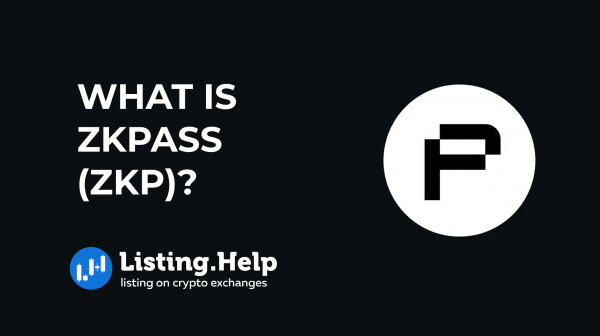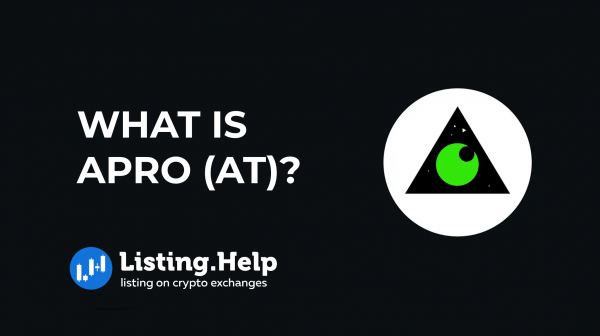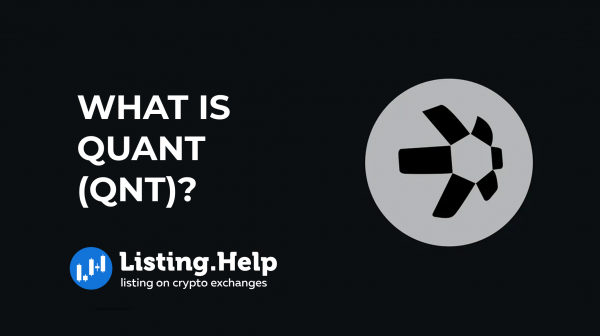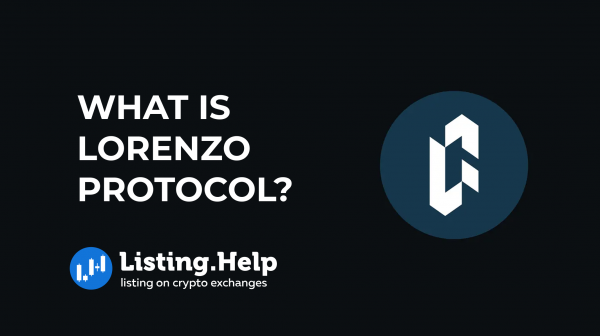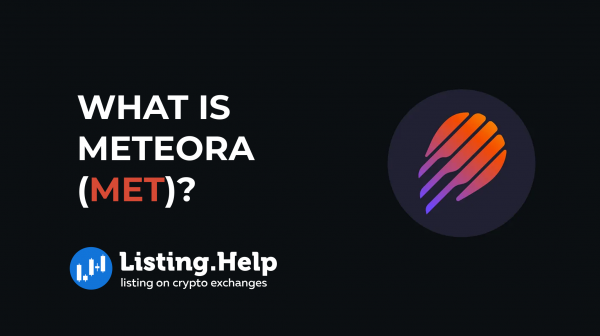What is a SoulBound Token? How do SBTs work?
 September 29, 2023
September 29, 2023 Updated: October 13 2023, 07:27
Updated: October 13 2023, 07:27
LEAVE A REQUEST
Launching your own token project? Our experts are ready to help with listing on exchanges, market making, marketing and other solutions
SUBMIT APPLICATIONWeb3 has blown minds by offering a radically new, decentralized financial system in just a decade. Features like smart contracts and consensus methods are the backbone of this open-source platform, which lets people freely make and approve financial transactions. The level of innovation and flexibility in Web3’s decentralized finance (DeFi) space is staggering, but it’s also incomplete in a critical area.
What’s missing? A native identity mechanism within Web3 that would link to real-world contracts, like signing an apartment lease or setting up recurring payments for utilities. Right now, the DeFi system operates largely in anonymity or pseudonymity, and that’s where the current limitations arise. It’s hard to move beyond strictly financial contracts when there’s no reliable way to represent “who you are” within the system.
This is where Soulbound tokens could change the game. These tokens have the potential to serve as verified identity markers in the Web3 ecosystem. Having a digital identity token tied to your reputation or skills could make it much easier to enter into complex contracts or agreements, just like in the traditional financial world. Imagine being able to secure an apartment lease or even get a job based on a verified digital identity that is tied to your past actions, reputation, or skill sets.
Defining SoulBound Tokens (SBTs)
Soulbound Tokens (SBTs) offer a way to bring a social aspect into blockchain, making it more than just a financial tool. Coined by Ethereum’s co-founder Vitalik Buterin and other experts, SBTs are part of a vision for a decentralized society, or DeSoc. This new society would let communities form in a more organic, bottom-up way. An SBT is basically a digital badge that shows your skills, memberships, and promises. Unlike regular NFTs, you can’t sell these tokens; they’re permanently linked to your digital identity.
So, what makes SBTs stick to you? They are a type of non-transferable token. That means, once it’s yours, it’s yours forever and helps build your online reputation. The term “Souls” refers to the digital wallets where these tokens live. For example, your Soul could show where you’ve worked, sort of like a digital resume. This is groundbreaking because it adds a layer of trust and information in the blockchain world.
SBTs get even more interesting when they’re verified by others. Say, you go to an Ethereum conference. The Ethereum Foundation, acting as another Soul, could give you an SBT as proof of attendance. This way, your SBT isn’t just a self-made badge; it’s backed by a reputable entity. This interconnected system of verifying and vouching for each other’s credentials could pave the way for a more robust digital society.
The paper points out that the real economic value comes from how these SBTs help us interact. Called “plural network groups,” these interactions can boost economic activity by making relationships more transparent and trustworthy. So, it’s not just about what you’ve done or where you belong; it’s also about how you engage with others in this digital landscape. In a nutshell, SBTs could revolutionize not only how we see identity but also how we build economic and social value in the online world.
SBTs vs. NFTs
- Transferability: NFTs can be bought and sold; SBTs are non-transferable and bound to a specific “Soul” or digital identity.
- Access Control: NFTs can potentially be misused if transferred without authorization; SBTs are locked to one Soul, preventing unauthorized changes.
- Verification: SBTs can be verified on-chain due to their specific binding, adding an extra layer of security compared to NFTs.
Understanding Soulbound Tokens in Web3
In the evolving world of Web3, Soulbound tokens (SBTs) are emerging as a promising solution for using reputation as a currency, rather than traditional money-centric methods. Consider the usual lending process: lenders assess borrowers based on their bank account details, credit scores, and payment history to determine loan eligibility.
Enter SBTs: These tokens encapsulate one’s credentials and reputation, allowing them to act as collateral. So instead of relying on tangible assets or financial indicators, your digital reputation becomes your guarantee. But in a digital ecosystem built on trustlessness, how can reputation be assessed?
The key lies in the integration of SBTs in decentralized autonomous organizations (DAOs). Most DAOs operate by granting voting rights proportional to the amount of tokens a member possesses. However, SBTs can shift this dynamic, emphasizing reputation over token possession. For clarity, consider Kusama’s Governance Rewards program: members earn trophies based on their on-chain voting activity. These trophies can act as a tangible representation of one’s contribution and standing within the DAO, potentially even serving as collateral for financial engagements.
One significant advantage of a reputation-centric approach is the defense against Sybil attacks, where malicious entities aim to hijack a project by amassing a majority of its governance tokens. With publicly verifiable SBTs, DAOs can allocate more voting power to members with proven, respectable tokens, preserving the project’s integrity.
Do such tokens exist today? Yes, a few instances are starting to pop up. Notably, Binance will introduce the Binance Account Bound (BAB), the first SBT on the BNB chain. This token, while not possessing any inherent monetary value and being non-transferable, will validate Binance customers who have met KYC norms. Such tokens open the door for more transparent DAO governance and even functions like airdrops, pointing towards a future where reputation becomes an essential digital asset.
How can soulbound tokens be used?
Soulbound Tokens in Education
Soulbound tokens (SBTs) could modernize how we handle educational records. Today, when you graduate, a school will issue you a diploma. In the SBT model, schools become Souls issuing digital tokens to student Souls. These tokens could list your grades, courses, and degrees, serving as unforgeable, digital transcripts. This could make verifying educational background faster and more reliable.
SBTs in the Job Market
Likewise, SBTs could also revamp job applications. Companies could issue SBTs that encapsulate your work history, completed projects, and even employee reviews. When job-hunting, you’d simply share these tokens, like a digital, tamper-proof resume. Employers could trust these tokens as they’re non-transferable and issued only by verified companies.
Healthcare and SBTs
Healthcare could also benefit from SBTs. Your medical history could be tokenized into an SBT, making it easier to switch doctors or provide history for emergency services. No need for lengthy paperwork or reliance on memory; your medical SBT would offer an accurate, up-to-date health snapshot.
NFTs and Governance
In the Web3 space, SBTs could act as safeguards against NFT fraud by tethering an artist’s verified token to their artwork. It could also reshape governance in decentralized protocols. Instead of transferring voting rights, early supporters could be issued non-transferable SBTs, ensuring only those genuinely invested in a project’s success hold decision-making power.
Other Applications
The applications don’t stop at education, jobs, or healthcare. Imagine driver’s licenses as SBTs, or even tokens representing your credit history. Paid off a loan? The lender could issue an SBT as proof, simplifying future loan applications. These tokens could even function as digital resumes in the Web3 world, increasing your credibility in decentralized finance (DeFi) platforms.
Risks Linked to Soulbound Tokens: What to Consider
Soulbound Tokens (SBTs) offer many benefits, but they also bring certain risks to the table. One issue is wallet compatibility. Right now, many digital wallets aren’t set up for community-based recovery, which SBTs would require. If you lose access to your “Soul” or digital identity, regaining it might be complex unless wallets adopt new recovery systems.
A solution might be to use a community-based approach for recovery. For example, if you lose your private keys, the community you’re part of could collectively verify your identity and help you regain access. But this solution has its drawbacks too.
Another challenge is privacy. SBTs would hold personal information, such as education or work history. Anyone with conflicting interests, whether individuals or organizations, could misuse this data. The risk of harassment or even violence based on ideological differences could escalate.
Moreover, SBTs could potentially lead to discrimination in credit systems. If your tokens reflect certain affiliations or behaviors, you might get unfairly labeled and face limitations similar to China’s social credit system. This could create a kind of digital “caste” system, where certain groups get excluded or marginalized based on the SBTs linked to their digital identity.
So, while SBTs have the potential to revolutionize how we handle digital identity, they also pose challenges that need addressing. Balancing the advantages of verifiable credentials with the risks of privacy invasion and discrimination is crucial.
Conclusion
Soulbound tokens (SBTs) aren’t here to push NFTs out of the spotlight. Think of them as a specialized tool for managing digital identity. For decentralized autonomous organizations (DAOs), SBTs could be a game-changer. They offer a way for DAOs to know who’s really committed to their community, not just who owns the most tokens.
But the big question is about the future. Will SBTs and NFTs learn to play nice in the same sandbox, or will SBTs become the go-to for digital ID, pushing NFTs into a more niche role? Right now, it’s too early to tell. The whole idea of a decentralized society (DeSoc) in Web3 is still forming, and both NFTs and SBTs have roles to play in that.

To keep up with the latest trends and discussions surrounding SBTs, NFTs, and the evolving Web3 space, don’t forget to visit our blog at https://listing.help/blog. Stay in the loop as we explore these exciting developments.




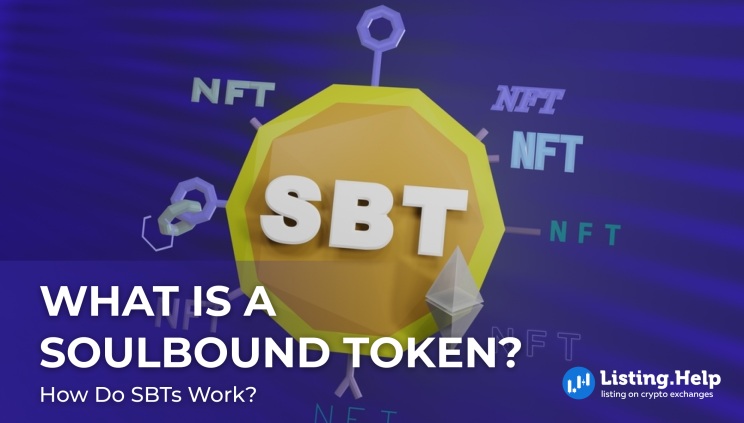


 February 23, 2026
February 23, 2026 